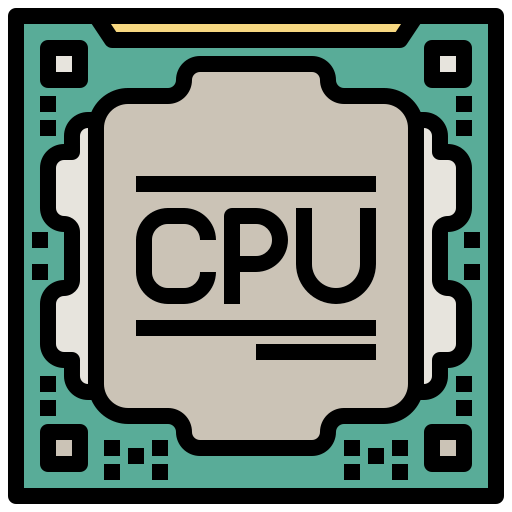Yes, CPU Benchmarks Matter. It is possible to get all types of benchmarking charts online, but do you have any idea what they mean?
When you want to buy a laptop, a piece of PC hardware, or a smartphone, you will always want to find something good for your money.
You can take a look at the specifications or just get people’s opinions. The only way to get detailed information is through referring to benchmark tests.
Many sites deal in Benchmarks. The websites can throw a whole host of charts and numbers at you for almost any piece of hardware on the market.
In our guide today, we are going to look at how to use this information to do good decision-making.
What Does Benchmarking Mean?
Benchmarking refers to doing a series of software tests on a piece of hardware that replicates the kinds of tasks it performs in the real world.
Therefore, a CPU in a laptop will be subjected to assorted mathematical tests to measure how quickly it can compress or encrypt data.
A hard drive on the other hand can as well be tested on the speed it can write a single, very large file or thousands of files.
Benchmarks for a graphics processing card are used to measure things such as frame rate that is achieved while rendering different numbers on screen at different levels of complexity and different resolutions.
At this point, the results do not make any sense on their own. But when subjected to at least two products or more of the same tests, you can do a comparison of the results and begin to charge which device offers better performance in that specific area.
How to benchmark your hardware
In case you would like to try it by yourself and find out how your kit compares, then there are a lot of applications that will help you achieve that.
The easiest application to get started with is Geekbench. It is a cross-platform tool that works across all the operating systems i.e Macs, Windows, iOS, and Android.
The application will help you compare performance across most operating systems.
The main focus of Geekbench is primarily on processor and memory performance. If you would like to test out other components such as graphics card and drive speed, then you can be sure to try NovaBench and PassMark for desktop devices and AnTuTu for Android phones.
Note that a huge number of variables will impact the results of benchmark tests. Even something simple as the level of charge in your laptop or smartphone battery could skew the results.
Many big companies that carry out benchmarking tests will make an effort to minimize these variables.
Do not be surprised if your kit, which you have no doubt subjected to many months of real-world use, produces different results.
Common benchmark tests and what their meaning is
Benchmark tests differ based on the software being used or the person that is performing the testing.
Since different tests will often focus on different areas, you can use multiple programs to better understand how the hardware performs.
The following are some of the common tests, what they mean and what to look for.
Processors
- Floating point math tests – used by most tools, this tests the processor’s ability to perform a series of basic arithmetic functions. A floating point indicates that the numbers used in the function involve fractions. Integer tests using whole numbers are also tested separately. The results will most commonly be displayed in milliseconds, so a lower number likely indicated faster performance.
- Compression tests – test the speed at which the processor can process a large amount of data in a lossless way. The test will likely express the results as a speed in kilobytes per second, and therefore a high number is better.
- Single core tests – These tests focus on the performance of a single core in the processor. Good single-core performance is very important since the software is not optimized for multi-core processing.
Graphics cards
- 2D graphics tests – this kind of test mainly focuses on drawing, moving, and scaling lines, fonts, and elements within a user interface. It is most of the time measured in frames per second and therefore high frames per second are okay.
- 3D graphics tests – This is a big test for gaming and graphics-intensive applications, and they are used by tools such as heaven benchmark or 3DMark. These kinds of tests involve rendering a few or very many 3D objects on screen at once. The tests usually take place at different levels of complexity such as detail, shadow, anti-aliasing, etc. they can as well be used to test different APIs such as DirectX and OpenGL.
Hard Drives
- Sequential tests – Hard drive benchmarks most of the time focus on the sequential read and write speeds and random read and write speeds.
- Random tests – these tests show how the drive performs when it is required to access a lot of data that is stored randomly throughout the drive. Random read and write times are considerably slower than sequential times.

Do CPU Benchmarks Matter? (Explained)
Smartphones
Smartphone-centric benchmark applications will test most of the same elements as desktops and laptops. But they as well include a few extras such as:
- SD card read/write speed – same as hard drive tests, this determines the speed at which your phone can access data read or written to a memory card or internal storage. As with hard drives, it is measured in MB/s, so a higher number indicates faster performance.
What is the importance of Benchmarks?
Benchmarks are useful as a guide to hardware performance, but they are not the be-all and end-all.
They are particularly best at showing performance improvement from one generation to the other and it can help you determine the value for money of the product since you can easily see how similarly priced alternatives.
So in general, you want to use a benchmark when you have specific requirements.
For example, if you are looking to use your hardware for gaming, video editing, or any other specific purpose, a corresponding benchmark is a good solution.
Do CPU benchmarks matter?: Final thought
Yes, it matters a lot because as we have seen, you will be able to do different tests to determine the comparison between the things you want to have.
So it is always advisable that before you purchase anything, to do some tests on them and determine their levels of speed, etc.
Related article:
Easy Guides On How To Overclock CPU Without BIOs (Explained)

